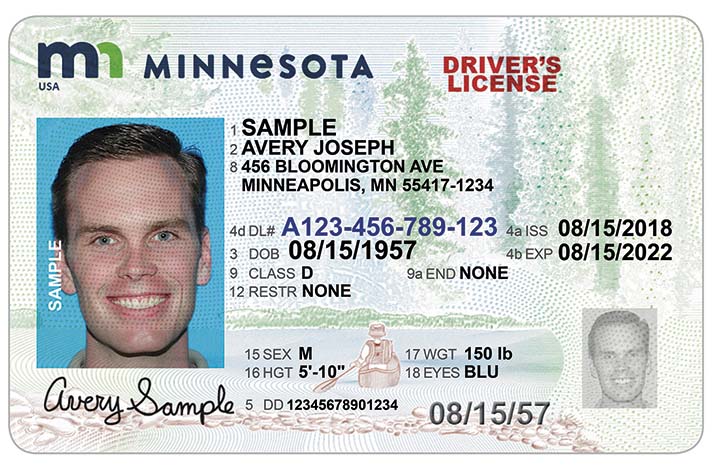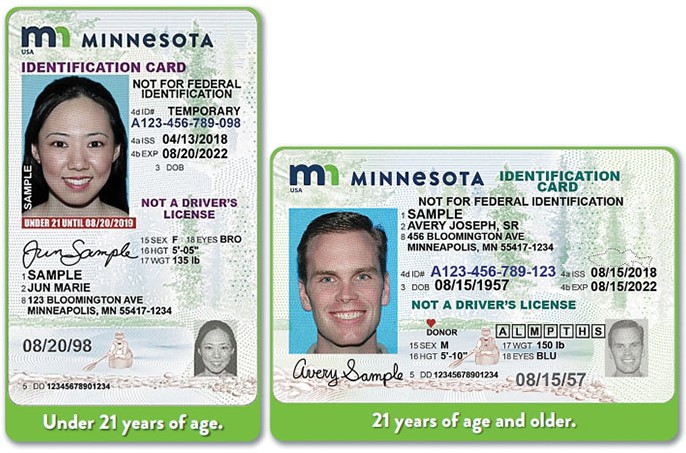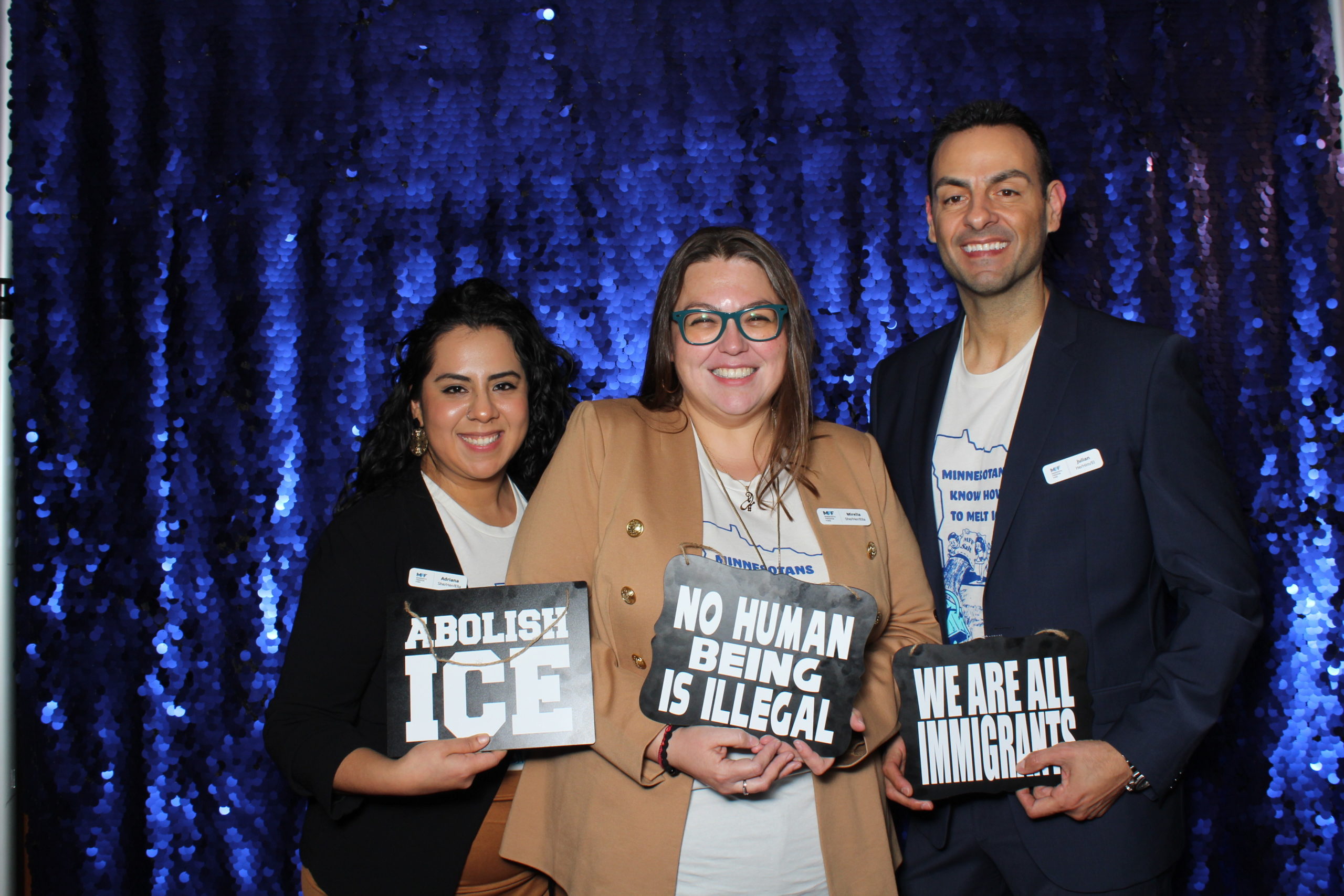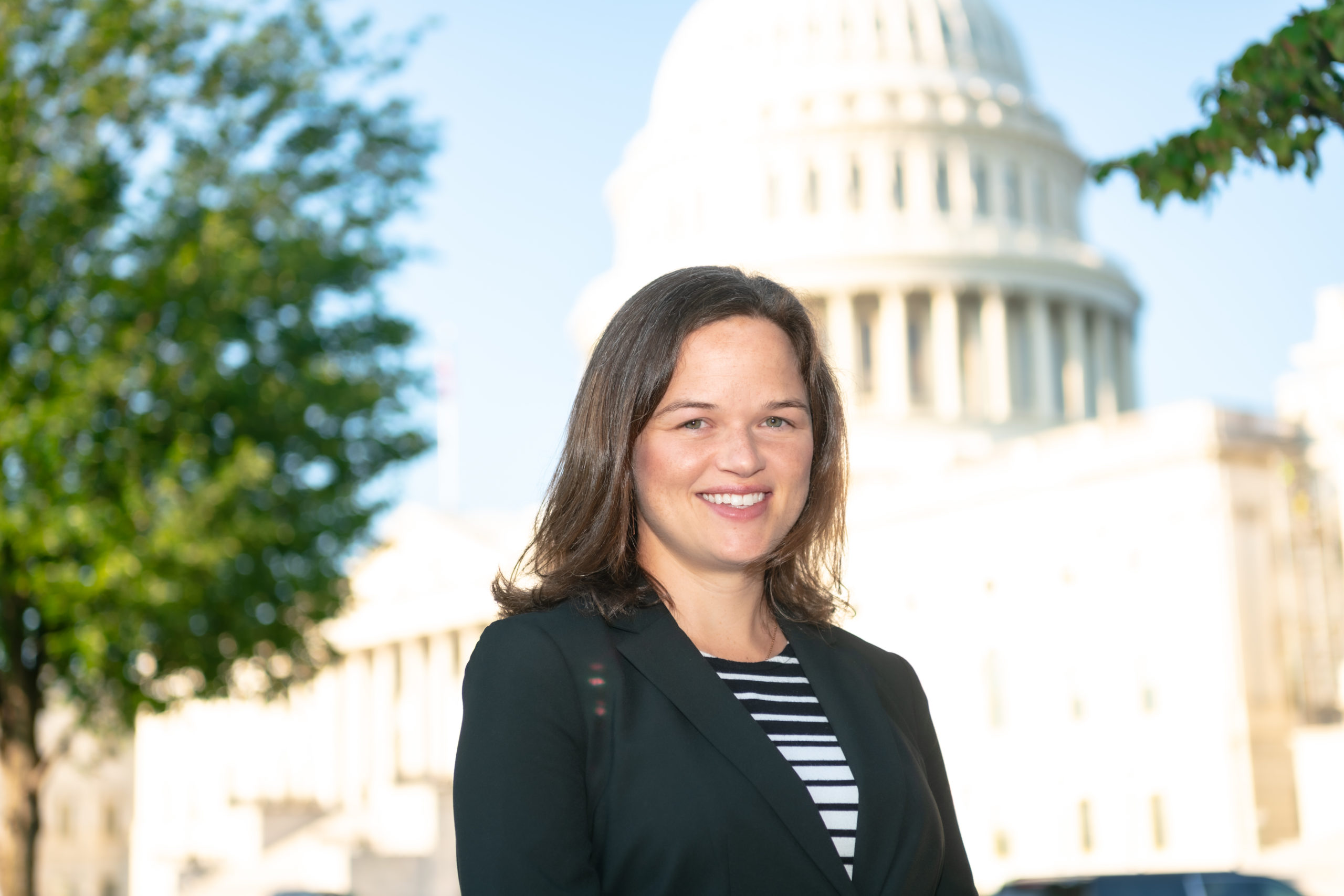Vigente al 28 de marzo de 2023. Esta hoja informativa es un trabajo en progreso y se actualizará según sea necesario. Esto no es un consejo legal.
Escanee este código QR para obtener una grabación de audio de esta hoja informativa.
El 7 de marzo de 2023, el gobernador Tim Walz firmó la ley Licencias de Conducir para Todos. La ley entrará en vigor el 1 de octubre de 2023. Esta hoja informativa resume únicamente la nueva ley.
Durante los próximos meses, el Departamento de Seguridad Pública (DPS), ILCM y nuestros socios prepararán otros recursos para ayudarlo a prepararse para solicitar una licencia de conducir. Para ver los últimos recursos, visite www.ilcm.org.
Para que esta hoja informativa sea más fácil de leer, nos referimos a “licencias de conducir”, pero también están disponibles las tarjetas de identificación estatal según la nueva ley.

1. ¿Quién puede obtener una licencia de conducir en virtud de la nueva ley?
A partir del 1 de octubre, todos los habitantes de Minnesota pueden obtener una licencia de conducir sin importar su estatus migratorio. Para obtener una licencia de conducir, un solicitante de 21 años o más debe demostrar su identidad, aprobar el examen de la vista y aprobar los exámenes escrito y práctico. Los requisitos para los solicitantes que tienen entre 16 y 21 años son diferentes.
2. ¿Qué tipo de licencia de conducir está disponible según la ley Licencias de Manejar para Todos?
A partir del 1 de octubre, todos los habitantes de Minnesota serán elegibles para una licencia de conducir Clase D estándar, independientemente de su estatus migratorio. No habrá marcas en la licencia que indiquen ciudadanía ni estatus migratorio.
Hay otras dos licencias disponibles en Minnesota: licencias de conducir mejoradas y Real ID. Para obtener una licencia mejorada o Real ID, el solicitante debe demostrar la ciudadanía o un estatus migratorio calificado.

3. ¿Qué sucede si solo quiero una identificación pero no para conducir?
Cualquier persona de cualquier edad puede solicitar una tarjeta de identificación de Minnesota (imagen de la identificación arriba). Después del 1 de octubre, cualquier persona de cualquier edad puede solicitar una tarjeta de identificación de Minnesota independientemente de su estado migratorio. El solicitante debe solicitar la tarjeta y pagar la tarifa requerida y presentar prueba de identidad (los mismos tipos de documentos de identidad que se permiten para una licencia de conducir). A partir del 1 de octubre, todos los que viven en Minnesota serán elegibles para las tarjetas de identificación de Minnesota, independientemente de su estado migratorio. No habrá marcas en las tarjetas de identificación que indiquen ciudadanía ni estado migratorio.
4. ¿Qué tipo de documentos se pueden utilizar para demostrar la identidad?
Los solicitantes de licencias de conducir estándar de Clase D ya pueden usar los documentos de identidad que se enumeran aquí para demostrar su identidad. A partir del 1 de octubre, los solicitantes también podrán usar varios documentos extranjeros y de inmigración para demostrar su identidad. Estos documentos incluyen lo siguiente, y el Departamento de Seguridad Pública (DPS) publicará una lista más larga de documentos aceptables más cerca del 1 de octubre:
- Pasaporte extranjero
- Acta de nacimiento extranjero
- Certificado de adopción extranjera
- Ciertos avisos de presentación y aprobación de inmigración
5. Me resultará difícil conseguir los documentos de identidad necesarios para esta solicitud. ¿Qué debo hacer?
Esta ley no entrará en vigencia hasta el 1 de octubre de 2023, por lo que le da tiempo para reunir los documentos requeridos. Si no puede obtenerlos, aún puede haber una manera de solicitar la licencia de conducir (a través de algo llamado “proceso de desviación”). DPS todavía está trabajando en los detalles de algunos de estos procesos y pondrá a disposición más información más cerca del 1 de octubre.
6. ¿Necesito proporcionar prueba de ciudadanía o estatus migratorio para obtener una licencia de conducir de Clase D?
A partir del 1 de octubre, los solicitantes de licencias de conducir estándar de Clase D no necesitan presentar prueba de ciudadanía o estatus migratorio para obtener una licencia de conducir. De hecho, DPS no puede preguntar a los solicitantes de licencias de conducir de Clase D sobre su ciudadanía o estatus migratorio.
7. Soy indocumentado (por ejemplo, ingresó los Estados Unidos sin visa, entró con visa y se quedó una vez vencida, etc.). ¿Puedo obtener una licencia de manejar de Minnesota?
Sí. A partir del 1 de octubre, no se requerirá comprobante del estado migratorio como parte de una solicitud para una licencia de conducir de Minnesota. Deberá proporcionar los documentos de identidad requeridos (ver la pregunta #4), pero no deberá tener ni demostrar un estado migratorio legal para ser elegible para una licencia de conducir de Minnesota.
8. ¿La licencia de conducir otorga algún estatus migratorio o autorización de trabajo a los inmigrantes indocumentados?
No. El estado migratorio es un asunto de ley federal. Las licencias de conducir emitidas bajo la ley estatal no otorgan estado migratorio ni autorización de trabajo.
9. ¿Cuáles son las protecciones de privacidad de la ley Licencias de Conducir para Todos?
A partir del 1 de octubre, habrá restricciones estrictas sobre la capacidad del DPS para compartir información fuera de la agencia sobre alguien que tenga una licencia de conducir de Clase D.
Primero, DPS no puede compartir ninguna información sobre la ciudadanía o el estado migratorio de una persona. Hay una excepción: DPS puede compartir estos datos con el Secretario de Estado de Minnesota (SOS) para mejorar los registros de inscripción electoral.
Segundo, DPS no puede compartir ninguna información sobre personas que hayan solicitado o recibido una licencia de conducir de Clase D con ICE a menos que un tribunal ordene a DPS que lo haga.
Tercero, si DPS comparte información fuera de la agencia sobre personas que solicitaron o recibieron una licencia de conducir de Clase D, la agencia receptora debe firmar una certificación de que no compartirá la información con ICE ni utilizará la información para hacer cumplir las leyes de inmigración.
10. Si obtuve un Número de Seguro Social para fines temporales pero ya no es válido para trabajar, ¿es ese el que debo poner en la solicitud?
No es necesario tener un Número de Seguro Social (SSN) para obtener una licencia de conducir estándar de Clase D. La solicitud de licencia de conducir les pedirá a los solicitantes que pongan su número de seguro social. Si tiene uno, debe proporcionarlo. Debe proporcionarlo aunque no tenga un estado migratorio legal y aunque el SSN no sea válido para fines laborales. Si no tiene uno, firmará dando fe de no tener uno.
11. ¿Debo incluir el ITIN si tengo uno?
No incluya su número ITIN en el espacio para el SSN. La solicitud de licencia de conducir actualizada puede pedir un número ITIN. Si le pide el número ITIN, debe proporcionarlo. DPS proporcionará más información sobre esto en una fecha posterior.
12. ¿Dónde puedo solicitar la licencia? ¿Tengo que hacerlo yo mismo?
Minnesota Driver and Vehicle Services (DVS) tiene información disponible en el sitio web de Minnesota DVS sobre las ubicaciones de las oficinas, los horarios de las pruebas y las tarifas para las solicitudes de licencias de conducir.
Puede completar el proceso de solicitud en persona en una ubicación de DVS o en una ubicación oficial asociada de DVS. También puede completar partes del proceso de solicitud, como la prueba escrita, en organizaciones comunitarias asociadas y oficiales de DVS. Asegúrese de completar su propia solicitud y de presentarla en una ubicación de DVS o en un socio oficial de DVS. Las solicitudes las tiene que presentar la persona que solicita la licencia y no se pueden presentar hasta el 1 de octubre.
13. ¿Qué sucede si obtuve una licencia de conducir en otro estado?
Si obtuvo una licencia de manejar en otro estado, consulte el sitio web de Minnesota DVS. La respuesta depende de dónde obtuvo la licencia y si aún es válida en el momento en que solicita la licencia de Minnesota. Pregunte directamente al DVS si tiene preguntas después de consultar su sitio web y/o pregunte a un abogado de inmigración si tiene preguntas sobre los documentos que usó para obtener la licencia en el otro estado.
Escanee este código QR para obtener una grabación de audio de esta hoja informativa.
Versión PDF de esta hoja informativa
- Arabic / أسئلة كثيرا ما تُسْأَل (أسئلة شائعة): “رخصة قيادة للجميع” – العربية
- Frequently Asked Questions: Driver’s Licenses for All – English
- Les Questions Fréquemment Posées : Le Permis de conduire Pour Tous – français / French
- Kesyon yo poze souvan: Lisans chofè pou tout moun – kreyòl ayisyen/Haitian Creole
- Cov Lus nug tsis tu ncua: Daim ntawv tsav tsheb rau sawv daws – Hmoob/Hmong
- တၢ်သံကွၢ်တဖၣ်လၢ ဘၣ်တၢ်သံကွၢ်အီၤ ခဲအံၤခဲအံၤ-ပှၤနီၣ်သိလ့ၣ် အလဲးစ့ၣ် လၢပှၤကိးဂၤဒဲးအဂီၢ် – Karen
- Had iyo Jeer la is weeydiiyo: Shatiga darawalnimada oo Idil – Soomaali/Somali
- Maswali Yanayoulizwa Mara Kwa Mara: Leseni za Udereva kwa Wote – kiswahili/Swahili
- Поширені запитання: Водійські посвідчення для всіх – українська/Ukrainian
















